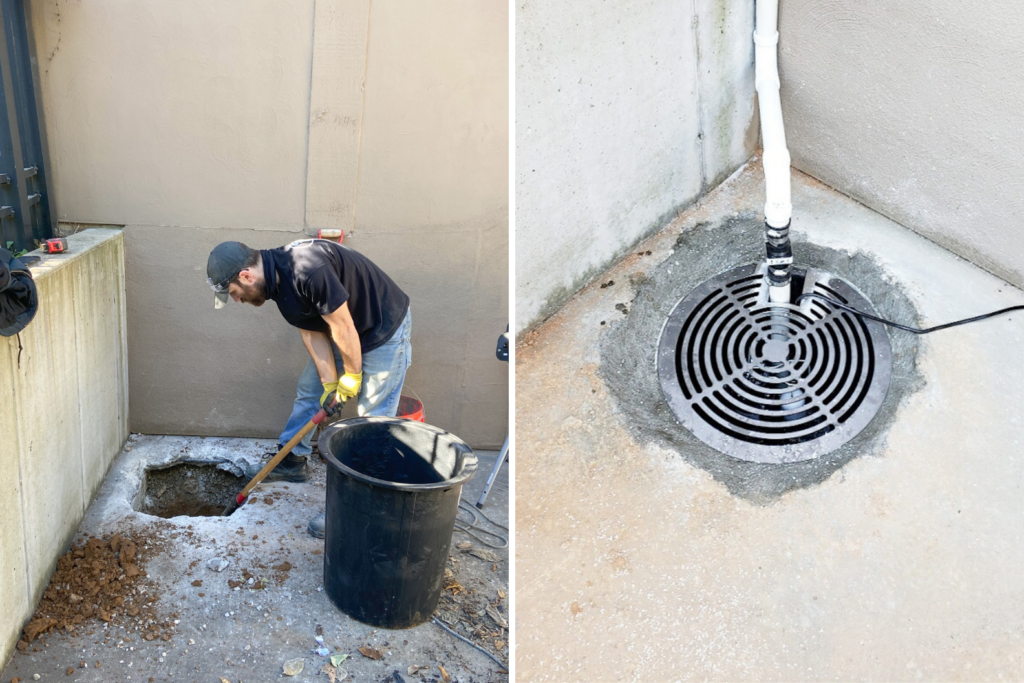Ever heard the horror stories of flooded basements and the financial toll they caused? If you’ve ever experienced one, you probably know that it’s not a pretty sight and the clean-up process can quickly become quite expensive. That’s why we always label flooded basements as a “plumbing emergency.” Luckily, there are ways that you can limit your odds of this occurring and a sump pump is a great place to start. Unfortunately though, most homeowners assume their sump pump is always ready to go until a heavy storm comes through and it doesn’t kick on. At this time, it’s likely too late!
In this week’s blog post, we’re going to take a deeper look at sump pumps. We’ll discuss the basic purpose of a sump pump, why they can fail from time-to-time, the importance of maintaining it and how many years you can expect to get out of a sump pump. Like we often say with most plumbing components, nothing is built to last forever. However, from a homeowner’s perspective, you’re always going to want to get (at least) close to the estimated lifespan of various elements to ensure you’re getting the best return on your investment. We’ll provide some tips in this blog to help ensure that is the case with your sump pump!
Interested in having a sump pump installed at your home or business? Our service technicians have experience installing both residential and commercial sump pumps. For a free quote or to simply learn more about the brands we install, give us a call at (816) 348-3481 or fill out the form HERE.
What is a sump pump?
The purpose of a sump pump is fairly straightforward. It is typically installed in a basement or crawl space and the device itself is placed in a pit. Keep in mind that this pit is usually at the lowest part of your house. Once the water in the pit hits a certain point, the sump pump kicks on, having been activated by the float switch. At this point, it starts dispersing the water out of the pit and through the line that leads away from your house or building. If your sump pump is in normal operating condition, it should only turn on when it’s needed.
Another component of the sump pump system that often gets overlooked is the “check valve.” The check valve is on the discharge pipe that runs out of your sump pump. This simply prevents the sump pump from having to pump back out water that has already been discharged.
Why does a sump pump fail?
Now that you know why a sump pump is so important and how it helps keep your basement from flooding, it’s important to be mindful of the various situations in which it fails. And while you may not need it that many times throughout the year, it is undoubtedly critical to have it always ready to go in the instances where you do need it!
Power Outage – Unsurprisingly, the most common occurrence of a sump pump failing is when the power goes out. If the power were to go out during a storm, you’ll want a battery backup system that can kick on when needed.
Maintenance – It’s safe to say that maintenance goes hand-in-hand with owning a home. As the years go by, there’s no doubt that maintenance tasks are inevitable. However, when discussing a sump pump, the maintenance really isn’t too complicated. One of the best ways to test it and make sure everything is still working properly is to simply test it. Slowly pour roughly 5 gallons of water into the pit and check if the pump turns on. Make sure it’s dispersing the water away from the foundation and it should turn off once it’s pumped all of the water out. Simply enough, right?
Clogged Lines – With the general overview provided above, you’ve probably started to understand that the discharge lines are an integral part of the sump pump process. They need to be clear for the water to be pumped out of the pit. However, if they’re clogged from any type of debris or even frozen, this can cause issues. It’s no different than if you have a clog in a drain line.
Installation – Just as is the case with any other plumbing fixture or appliance, the installation process is important in ensuring everything runs smoothly. One key aspect of this is making sure you have the right sized sump pump. Whether it be with tankless water heaters or garbage disposals, we’ve discussed the importance of sizing before here on the blog. The same goes for sump pumps. They come in a number of different sizes and it never hurts to get an experienced plumber’s opinion to make sure you have the right one installed.
While there are a number of other reasons as to why sump pumps fail, these are certainly some of the more common ones. You could also have a faulty pump, a sump pump that’s fallen on its side, one that’s failed because of old age, the list goes on. Nonetheless, as mentioned above, routinely testing it is a great rule of thumb for homeowners. This is particularly true when you know a rainy season is on the horizon. As always, it’s better to be safe than sorry!
How long does a sump pump last?
As briefly alluded to above, one of the reasons why a sump pump could fail is due to old age. Unfortunately, because of the wear and tear, just about every plumbing component will eventually need to be replaced. This is even true for the pipes themselves! And as you could probably guess, the same can be said about sump pumps. I’ll provide some estimated figures here on timelines, but keep in mind these can be greatly influenced by a few different factors. Some of these variables include how often it has been used, the amount of water that it’s had to pump out and even the brand of the pump itself. With all of that being said, a good baseline range to work off would be 8-10 years. While there’s likely plenty of homeowners that’ve gotten more than 10 years out of their sump pump, it wouldn’t hurt to keep a watchful eye on it when you get around that time.
Sump Pump Installation and Repair Services in Kansas City
Are you worried about the reliability of your current sump pump or don’t even have a sump pump installed? Here at Stine-Nichols Plumbing, we’ve seen the importance of sump pumps first-hand plenty of times over the years. Whether it be at a residential house or commercial facility, it’s tough to argue against having one installed. As long as you maintain it properly throughout the year, it can more than prove its value if you were to have any interior flooding in the basement. Not to mention, in terms of maintenance, there really isn’t a whole lot that homeowners have to do on a routine basis!
Our licensed plumbing technicians have extensive training when it comes to installing and repairing sump pumps. To receive a free quote, you’re more than welcome to either call us directly at (816) 348-3481 or fill out the contact form HERE. We currently serve the entire Kansas City area, as well as all of the surrounding cities. Lee’s Summit, Overland Park, Olathe, Shawnee, Liberty, Parkville, Kearney, you name it!


